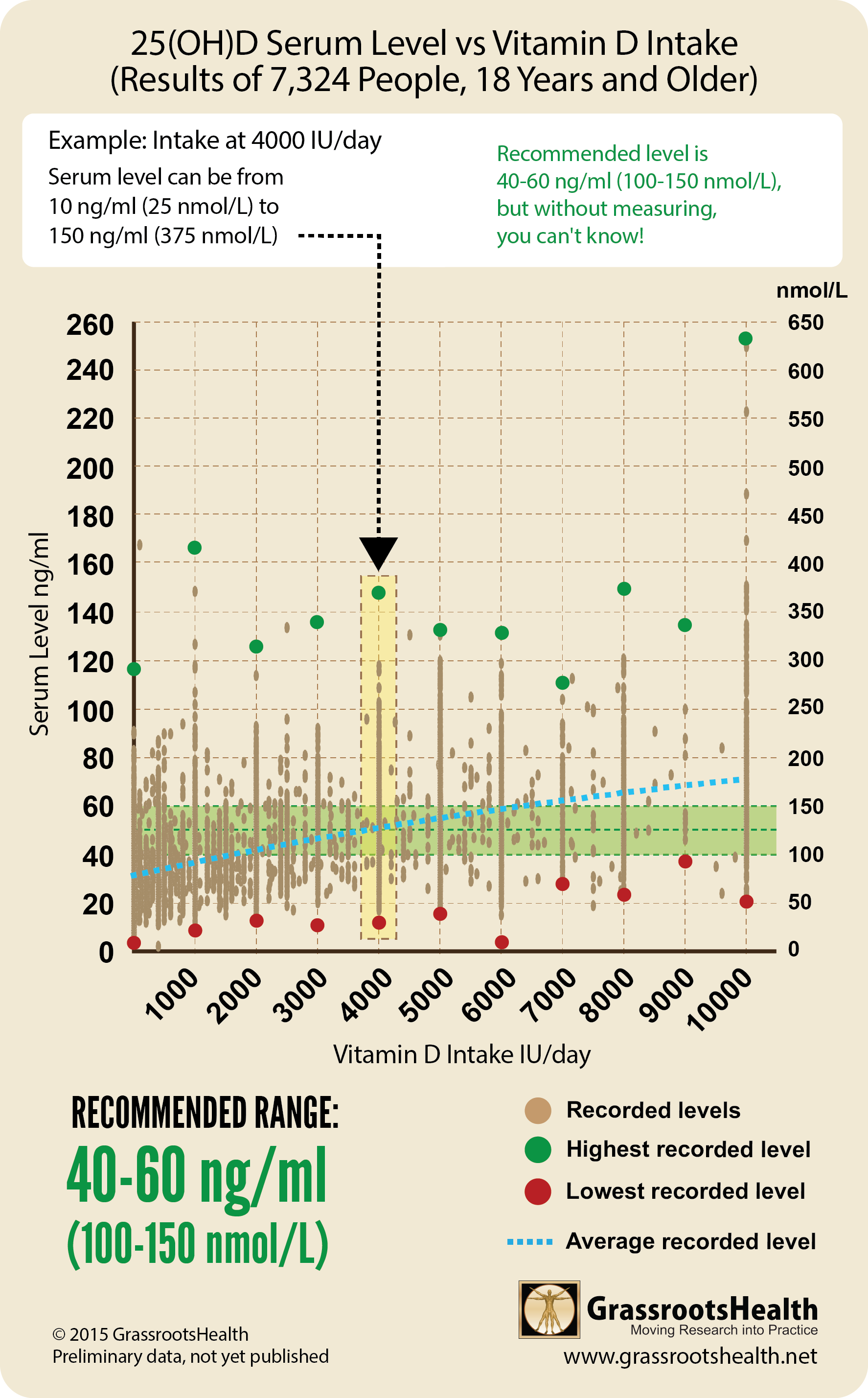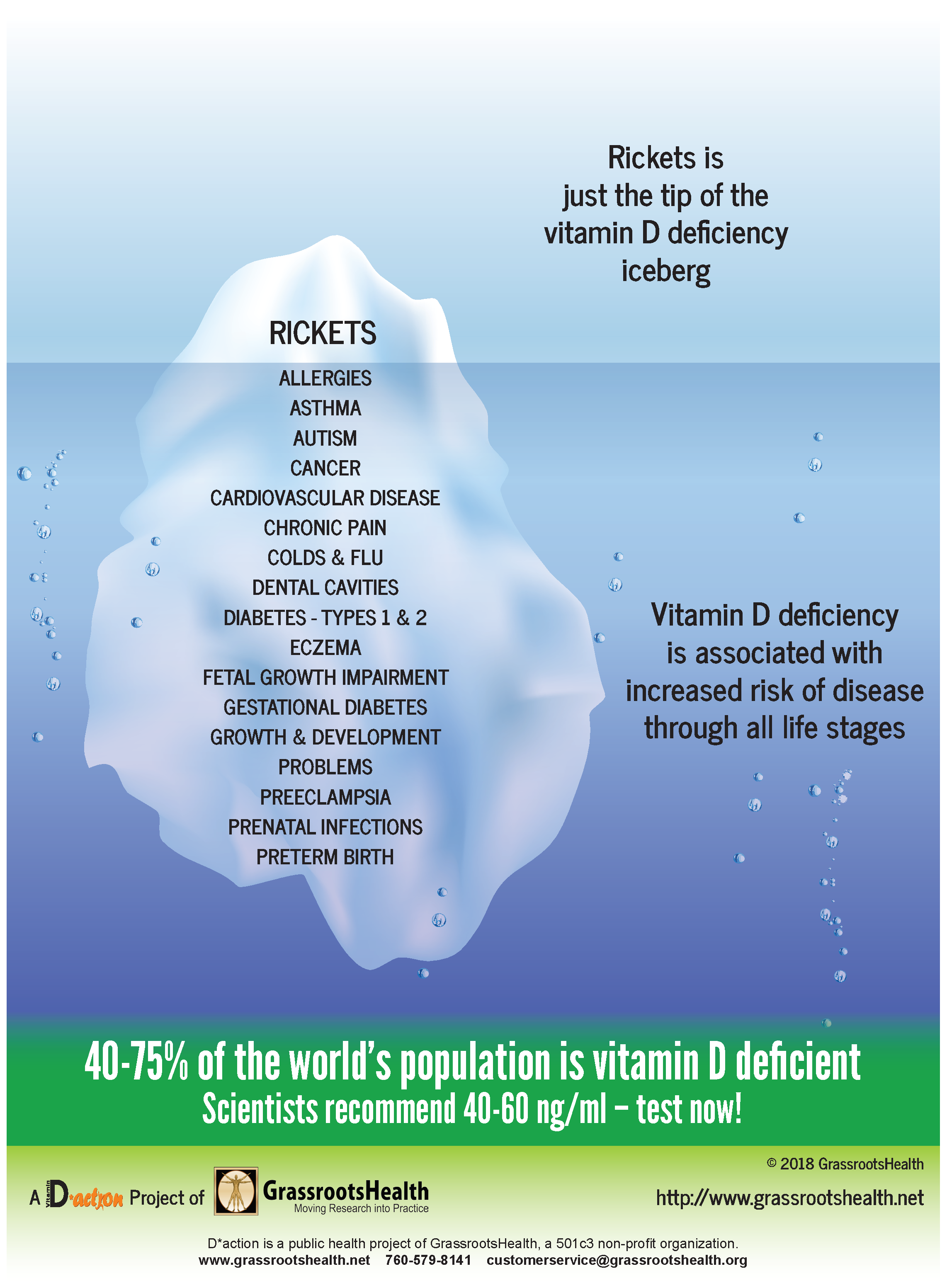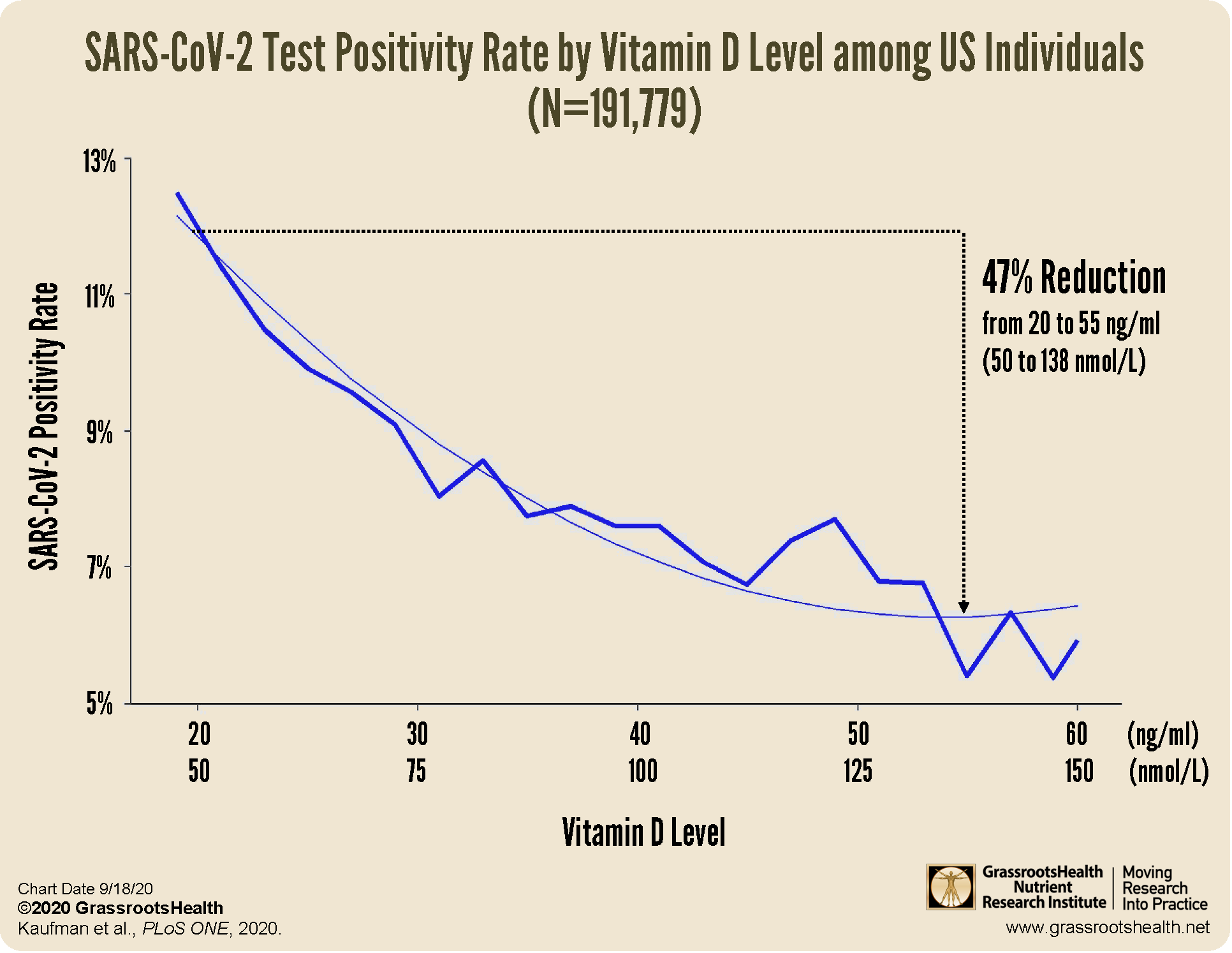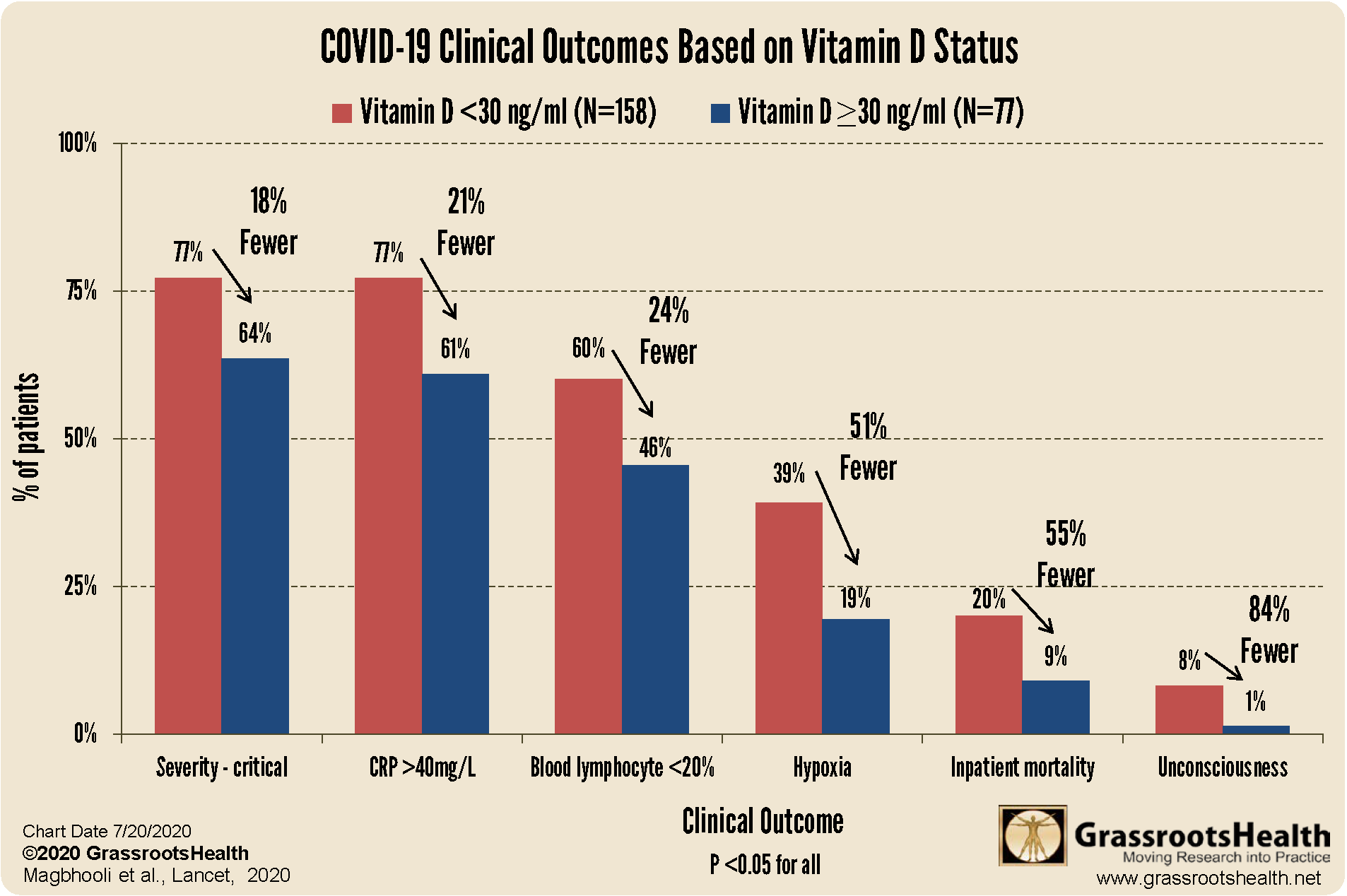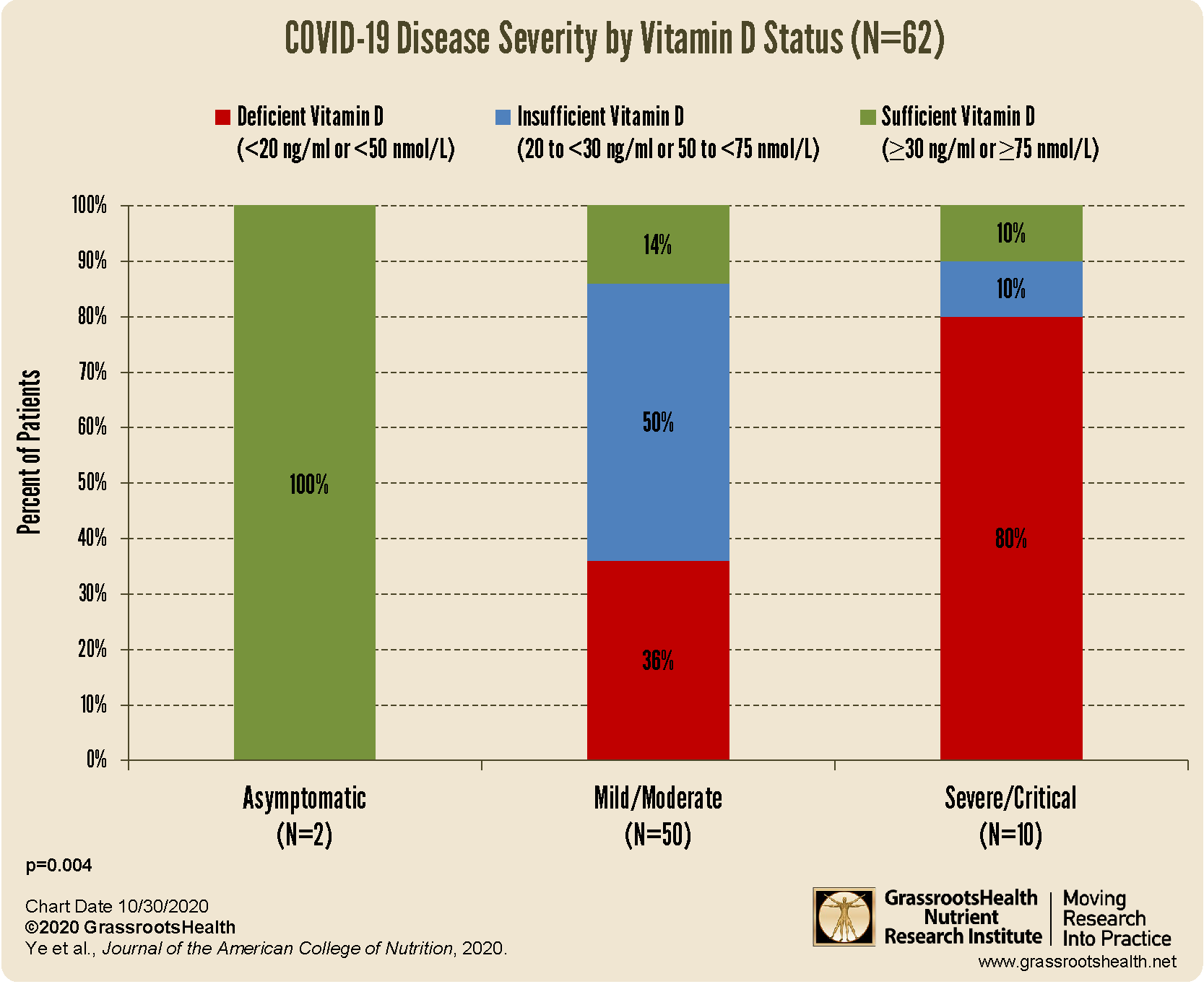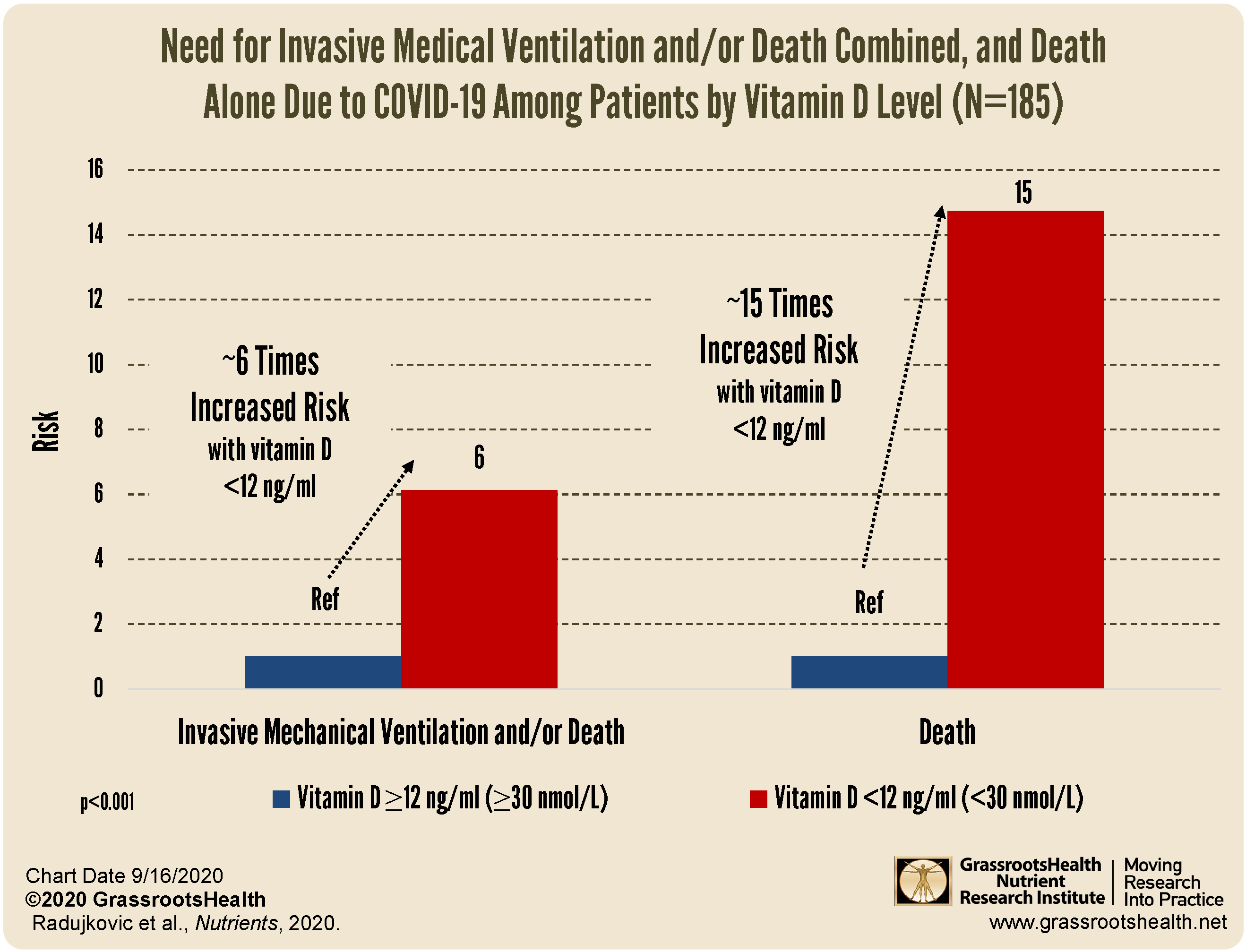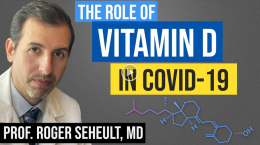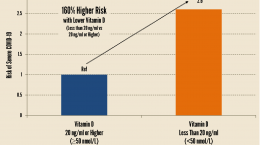Published on January 18, 2021
Over 185 Scientists, Doctors, & Leading Authorities Call For Increased Vitamin D Use To Combat COVID-19
 Leading health experts say vitamin D is necessary to help fight COVID-19 (MedPage Today), but HOW do you make it work for you AND the population? A major issue that must be highlighted and acted on immediately is the individual response to vitamin D supplementation. There is no one dose suggestion for everyone (one person may need only 2,000 IU/day while another may need 10,000 IU/day to achieve the same result) – and the ONLY way to know if you are getting enough or getting too much vitamin D is to test your blood level and adjust your dose to reach 40-60 ng/ml.
Leading health experts say vitamin D is necessary to help fight COVID-19 (MedPage Today), but HOW do you make it work for you AND the population? A major issue that must be highlighted and acted on immediately is the individual response to vitamin D supplementation. There is no one dose suggestion for everyone (one person may need only 2,000 IU/day while another may need 10,000 IU/day to achieve the same result) – and the ONLY way to know if you are getting enough or getting too much vitamin D is to test your blood level and adjust your dose to reach 40-60 ng/ml.
With the urgency of these statements during this pandemic, we need to quickly implement what GrassrootsHealth has developed over the last decade – a proven methodology to move vitamin D research and education into practice to ensure ALL are getting the vitamin D they need.
What Can You HELP DO TODAY?
Please forward this action letter to anyone you know that can help us all take action — friends, family, clients of yours, employers — ANYONE you know that can help make a difference for health! The message is clear:
- Everyone needs to test their vitamin D level [25(OH)D] to make sure it’s at least 40 ng/ml (100 nmol/L)
- Adjust the vitamin D intake to reach the target level using the D*calculator amounts to start with (choose maintenance dose for a 3 month rise or loading dose for quicker change)
- Test again based on the choice of rise time to make sure the desired level has been achieved
Please let us know what groups you forwarded the message to and we’ll send you some key group information that can be useful to you/them.
Everyone Responds Differently to Vitamin D
Our first publication in 2011 clearly showed the variation in the dose-response was not linearly related to intake, and that the blood level is the appropriate measure for the health efficacy of vitamin D. Note on the chart below those taking 4000 IU/day might have a serum level of as low as 20 ng/ml or as high as 120 ng/ml. Much of the variation is based on weight, other nutrients the person is taking, time of day measured, taking supplements with/without a meal, and UVB exposure, among other factors.
Virtually every cell in the body uses vitamin D. The iceberg diagram below shows that vitamin D impacts a very large number of conditions, and even though a primary focus might be on one condition (COVID-19, Breast Cancer, etc.), other outcomes will be impacted as well. For those interested in how vitamin D might affect COVID-19, note that the so called co-morbidities are affected by vitamin D too, and would possibly be helped at a lower or higher serum level than a specific condition being focused on. For example, we have seen that breast cancer still had a risk reduction with a serum level of 60 ng/ml (150 nmol/L) whereas rickets did not have further risk reduction beyond 20 ng/ml (50 nmol/L).
There is so much published now that indicates that the world’s population is vitamin D ‘deficient’, as defined by our Call to D*action as less than 40 ng/ml (100-nmol/L). The VitaminDforAll letter referenced below is aimed at the states/government entities that can take action without participating in a ‘research’ project. YOU can take action for yourself and those you influence now by becoming a participant in the ‘research’ project.
185 Scientists, Doctors, & Leading Authorities Call For Increased Vitamin D Use To Combat COVID-19
https://vitamind4all.org/letter.html
(2-page letter)
The letter was written and approved by 185 and counting of the world’s top scientists and experts on vitamin D – 95 signatories are professors and over 100 are medical doctors. Signatories come from 29 different countries. Over half, or 63% (104 of the 164), take 4,000 IU of vitamin D or more per day.
How much vitamin D are you and those you care about getting on a daily basis? Are they getting enough? YOU are the leaders in this movement for change — Please let us know at any time how we can help you with this task.
Are You Getting Enough Vitamin D? Test Your Vitamin D Level Today!
By joining the GrassrootsHealth projects, you are not only contributing valuable information to our study, but you are also gaining knowledge about how you could improve your own health through measuring and tracking your nutrient status, and educating yourself on how to improve it. Do you know what your status of vitamin D, omega-3s, and other essential nutrients is? Could your levels be improved? Test now to find out!
 We now have a NEW GIFTING SERVICE that allows you to quickly send ‘Gift Cards’ to friends, family and coworkers who you consider might need immediate access to testing, and to Claim the Joy of Your Health TODAY. Give the gift today!
We now have a NEW GIFTING SERVICE that allows you to quickly send ‘Gift Cards’ to friends, family and coworkers who you consider might need immediate access to testing, and to Claim the Joy of Your Health TODAY. Give the gift today!
What does the Research Say about Vitamin D & COVID-19?
It’s TIME to start saving lives! If you can help PREVENT the majority of the death, it’s time! What’s it costing you/us not to take action NOW?
There is much published research that supports a clear link between vitamin D and COVID-19 showing that higher vitamin D levels are related to:
a decreased risk of testing positive for COVID-19
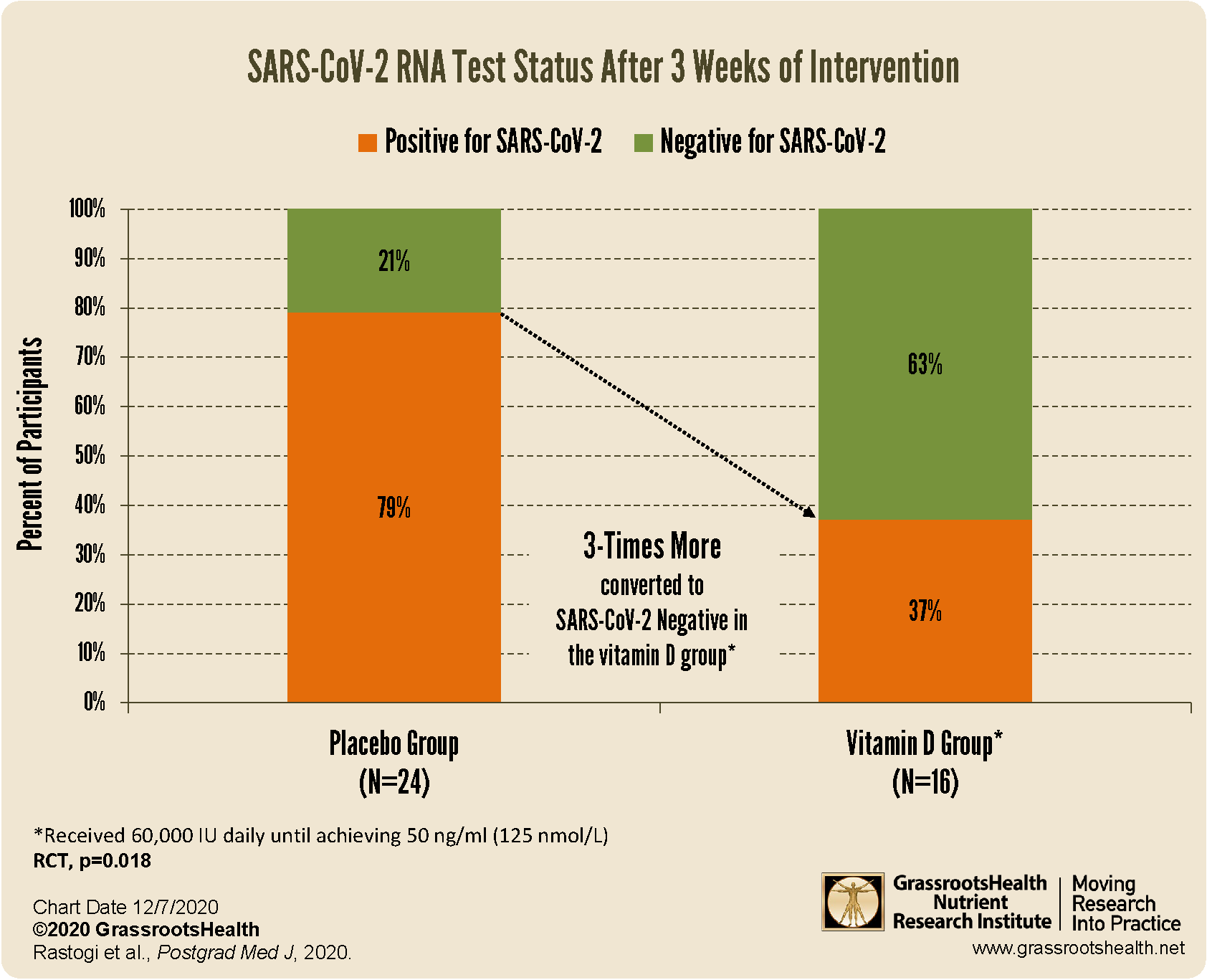 increased viral SARS-CoV-2 RNA clearance
increased viral SARS-CoV-2 RNA clearance
better clinical outcomes among patients with COVID-19
decreased risk of death due to COVID-19
Be sure to educate yourself on the benefits and importance of vitamin D for immune health, and take steps to ensure you and your loved ones are getting enough.
You can review all of the COVID-19 and immune health information we have shared on this page.


